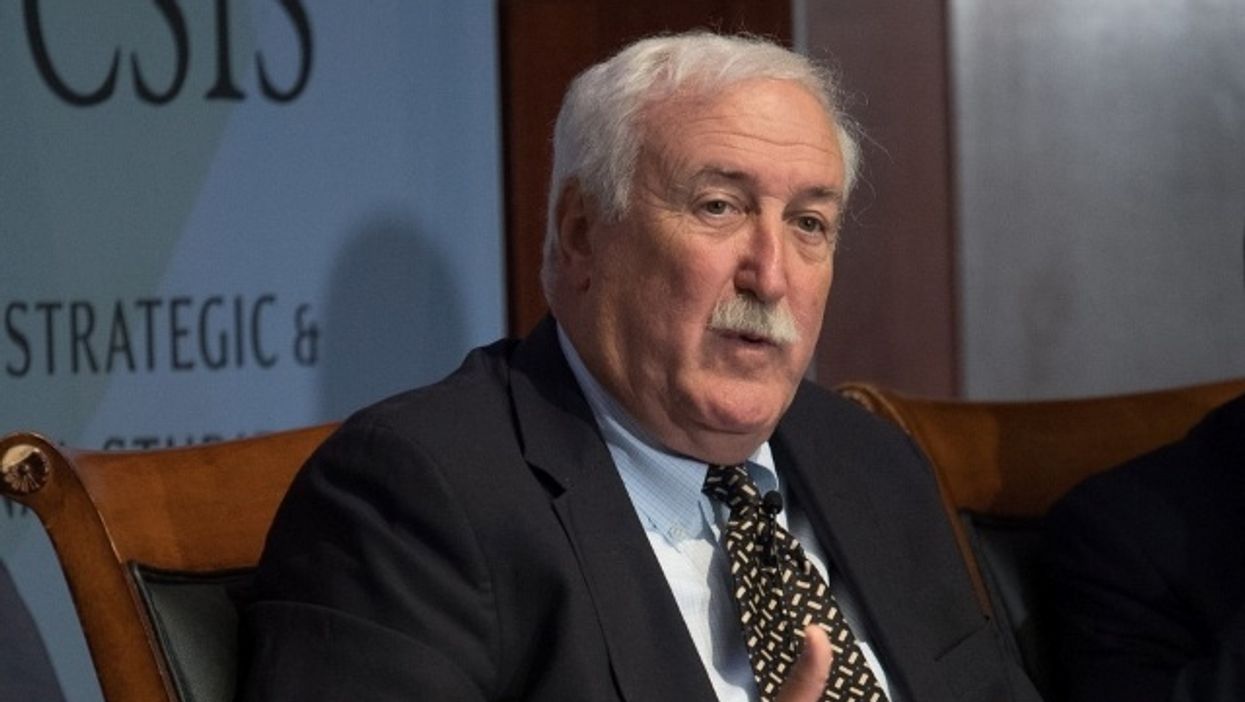Nearly 500 National Security Officials Say They ‘Fear’ For America Under Trump
Almost 500 national security experts — including 22 four-star military officers — slammed Donald Trump in a public letter released Thursday, calling him unfit for his role as commander in chief and endorsing Democratic presidential nominee Joe Biden.
The letter, simply addressed "To Our Fellow Citizens," is a bipartisan effort signed by prominent Republicans and Democrats alike who say they "fear" for their country under Trump. Signatories include former Navy Secretary and NASA administrator Sean O'Keefe, who served in both Bush administrations, and former Defense Secretaries Chuck Hagel, Leon Panetta, and Ash Carter.
Former State Department Deputy Secretary Richard Armitage, a Republican who served under George W. Bush, as well as Democrats former Secretary of State Madeleine Albright and former national security adviser Susan Rice also joined their ranks.
Some signers served under Trump and only recently retired, including Air Force Gen. Paul Selva, former vice chairman of the Joint Chiefs of Staff.
Gen. Peter Chiarelli, who retired in 2012 and was previously the second highest-ranking officer in the Army, told NPR: "I believe the current administration is a real threat to the republic," citing the Trump administration's poor foreign policy and coronavirus response.
The letter writers similarly note that the next president will inherit "a world in turmoil," calling out Trump's abysmal pandemic response, his concession to Russian influence, and his trade war against China. The letter also mentions the worsening of climate change, the risks of North Korea's nuclear program, and the economic recession due to the coronavirus.
"Thanks to his disdainful attitude and his failures, our allies no longer trust or respect us, and our enemies no longer fear us," the writers said.
Michael O'Hanlon, a military analyst at the Brookings Institution, criticized Trump's "seat of his pants" decisions and noted that Bob Woodward's new book "Rage" revealed how perilously close Trump was in 2017 to steering the United States into war with North Korea.
Former Navy Secretary O'Keefe said the letter was intended in part as an effort to reach undecided voters.
In the letter, officials endorse Biden for president, saying he has "the character, principles, wisdom and leadership necessary to address a world on fire."
Trump's castigation by senior military officials and security experts comes closely on the heels of widespread reporting earlier this month of his alleged remarks calling fallen service members "losers" and "suckers."
In a separate incident this month, Trump was also widely criticized for comments swiping at top-ranking military officials.
"The top people in the Pentagon probably (don't like me), because they want to do nothing but fight wars so that all of those wonderful companies that make the bombs and make the planes and make everything else stay happy," Trump said earlier this month.
In the wake of controversy, more and more service members say they'll vote for Biden, as support for Trump among the military dwindles. In the results of polling by the Military Times conducted at the end of July and beginning of August, Biden had a nearly 4 point lead (41.3% to 37.4%) among veterans and active-duty military troops, with 49.9% saying they had an "unfavorable" view of the current White House occupant.
This is a break with long-standing trends of broad Republican support in the military ranks, since 59% of military veterans identify as Republican compared to 44% of the general population.
The military's concerns regarding Trump are starkly expressed in today's letter.
"(Trump) has demonstrated he is not equal to the enormous responsibilities of his office," the writers say. "He cannot rise to meet challenges large or small."
Published with permission of The American Independent Foundation.




